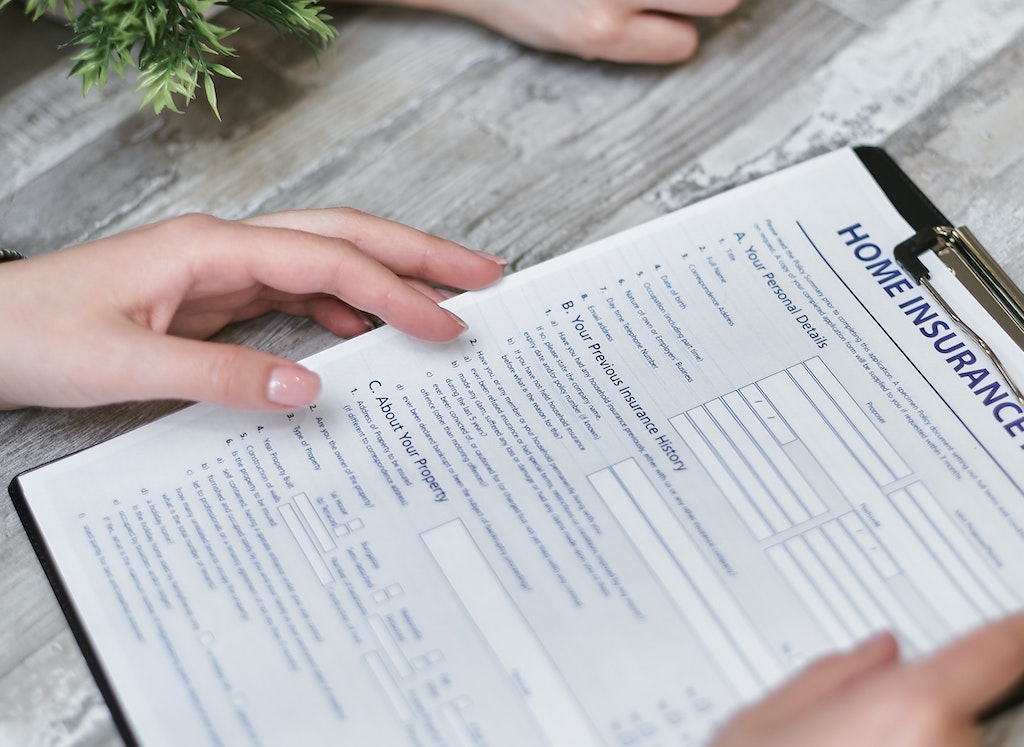Home insurance is filled with terminology that seems cryptic to the average homeowner. One such term frequently appearing in insurance policies is “Act of God.” It might conjure images of divine intervention, but it has a more earthly meaning in the insurance world. Why does understanding home insurance terminology like “Act of God” matter? When you understand the insurance language, you can confidently navigate the complexities, ensuring you have the right coverage when needed. This article will explore the significance of “Act of God” insurance claims, coverage options, and how to handle an insurance claim when this event occurs.
Defining “Act of God” in home insurance
The concept of “Act of God” in home insurance is, in essence, the unpredictability of nature. Mother Nature can unleash forces that are beyond human control, and these events can lead to substantial damage to your property. Hurricanes, tornadoes, earthquakes, wildfires, floods, and lightning strikes are just a few examples that can fall under the “Act of God” category. These events often strike without warning, leaving homeowners dealing with the aftermath.
Legal and insurance definitions
Legally and within the insurance industry, “Act of God” is typically defined as an event that could not have been foreseen or prevented by reasonable human foresight or care. This definition underscores the element of unpredictability and uncontrollability associated with these events. Insurance policies often use similar language, stating that they cover damage caused by “Acts of God” under specific circumstances.
These legal and insurance definitions are significant because they form the basis for assessing and paying out claims when such events occur.
Guide to Act of God Insurance Coverage: What’s Included and What’s Not?
Protecting your home against the unpredictable forces of nature means you must understand your insurance coverage. So, when wondering if home insurance policies cover “Acts of God,” consider the following.
Standard home insurance “Act of God” coverage
- Basic coverage: Most standard home insurance policies provide coverage for “Acts of God.” These policies, often called HO-3 policies, typically cover damage to your dwelling and personal property caused by such events.
- Dwelling coverage: Standard policies usually cover repairing or replacing your home’s structure if it’s damaged by an Act of God event, such as a hurricane tearing off your roof.
- Personal property coverage: Your personal belongings, like furniture, electronics, and clothing, are likely covered if damaged or destroyed by an Act of God event.
- Additional living expenses: If your home becomes uninhabitable due to an Act of God event, your policy may cover additional living expenses, such as temporary housing and meals.
Additional “Act of God” coverage options
- Flood insurance: While standard home insurance covers many Act of God events, it typically does not cover damage caused by flooding. If you live in a flood-prone area, you may need to purchase a separate flood insurance policy through the National Flood Insurance Program (NFIP) or a private insurer.
- Earthquake insurance: Similarly, earthquakes are often not covered under standard policies. If you reside in an earthquake-prone region, you can purchase earthquake insurance as an endorsement or standalone policy.
- Windstorm insurance: In some coastal areas susceptible to hurricanes and high winds, windstorm insurance may be necessary to protect your home against wind-related damage fully.
- Sewer backup coverage: This coverage can be valuable in cases where an Act of God event, like heavy rainfall, causes sewer backup into your home.
- Special riders: Depending on your location and specific concerns, you can add riders or endorsements to your policy for enhanced protection against certain Act of God events.
Review your policy with your insurance agent to ensure you have the coverage to protect your home and belongings.
Claims Process for Act of God Incidents in Home Insurance
Facing the aftermath of an Act of God event can be a horrible experience for any homeowner. From the devastation caused by natural disasters to the uncertainty of the future, understanding how to navigate the insurance claims process will help you.
Documenting damage and losses
The first and most critical step in filing an Act of God insurance claim is documenting the damage and losses you’ve incurred. This documentation is the foundation for your claim and significantly impacts its success.
- Photograph and video: As soon as it’s safe, take clear and detailed photographs and videos of the damage to your home and personal belongings. Ensure that you capture every angle, providing a comprehensive visual record.
- Create an inventory: Thoroughly inventory all damaged or destroyed items. Include descriptions, estimated values, purchase dates, and any applicable serial numbers. This inventory will help substantiate your claim.
- Preserve evidence: Do not dispose of damaged items until your insurance adjuster has assessed them. Saving damaged items and materials can be physical evidence during the claims process.
- Keep all receipts: If you need to make immediate repairs or secure temporary accommodations, keep all receipts. Your policy may cover these expenses.
Contacting your insurance company
Promptly notifying your insurance company is the next step in the Act of God insurance claims process. Here’s what you should keep in mind:
- Contact your agent: Reach out to your insurance agent or the claims department of your insurance company as soon as it is safe to do so. Timely communication is vital, as there may be deadlines for filing claims.
- Provide essential information: When contacting your insurer, be prepared to provide essential information, including your policy number, the date and time of the event, a brief description of the damage, and your contact information.
- Ask about emergency repairs: Inquire about any emergency repairs that may be necessary to prevent further damage to your home. Your insurer can guide you on what is covered under your policy.
Navigating the claims process
While the claims process can be complex, you’re not alone in this journey. Your insurance company will assist you every step of the way.
- Assessment of damage: An insurance adjuster will be assigned to assess the extent of the damage to your home and personal property. Be prepared to provide them with all the documentation and evidence you’ve gathered.
- Coverage determination: Your insurance company will review your policy to determine the coverage applicable to the Act of God event. They will let you know what is covered and what isn’t.
- Reimbursement: Once your claim is approved, your insurer will issue reimbursement for the covered losses. This may include repairs to your home, replacement of damaged belongings, and temporary housing expenses if applicable.
- Regular communication: Maintain open communication with your insurance company throughout the process. Ask questions and seek clarification on any aspects of the claim or coverage you don’t understand.
Remember that your insurance company is there to assist you in recovering from unexpected life events.
Mitigating “Act of God” risks
While insurance is there to protect your home against the unpredictable forces of nature, proactive measures can significantly reduce your vulnerability to Act of God events.
Home improvements for natural disaster preparedness
Investing in home improvements can substantially impact your home’s resilience to Act of God events.
- Reinforce structures: Consult a professional to reinforce your home’s structural integrity. This may include securing the roof, reinforcing walls, and installing impact-resistant windows and doors.
- Secure loose objects: In high-wind areas, loose objects can become dangerous projectiles during storms—secure outdoor furniture, trampolines, and other items that could cause damage.
- Elevate utilities: Elevating essential utilities like electrical systems and HVAC units can prevent damage during floods.
- Backup power: Consider installing a backup power generator to ensure essential systems continue to operate during power outages.
- Foundation waterproofing: In flood-prone regions, waterproofing your foundation can help prevent water damage to your home.
Community and government resources
Communities and governments offer valuable resources to help homeowners prepare for and respond.
- Emergency plans: Familiarize yourself with your community’s emergency plans and evacuation routes. Know where local emergency shelters are located.
- Alert systems: Sign up for community alert systems and weather alerts to stay informed about potential threats.
- Emergency kits: Prepare emergency kits that include essential supplies, such as food, water, first-aid items, and important documents.
- Insurance information: Contact your local government or community organizations for information on insurance programs that may be available to you.
Mitigating Act of God risks is an ongoing process involving proactive measures and the right insurance coverage. By investing in home improvements, utilizing community and government resources, and considering specialized insurance options, homeowners can significantly reduce their vulnerability to these unpredictable events. Ultimately, a combination of preparation and insurance protection ensures that your home and family remain safe despite nature’s fury.
Forces of nature hold sway, and preparing for Act of God events is important. Your home stands as your sanctuary, and with knowledge and preparedness as your allies, you’re now well-equipped to navigate the labyrinthine world of home insurance. Take these proactive strides, ensuring the protection of what matters most – your cherished home and beloved family.




